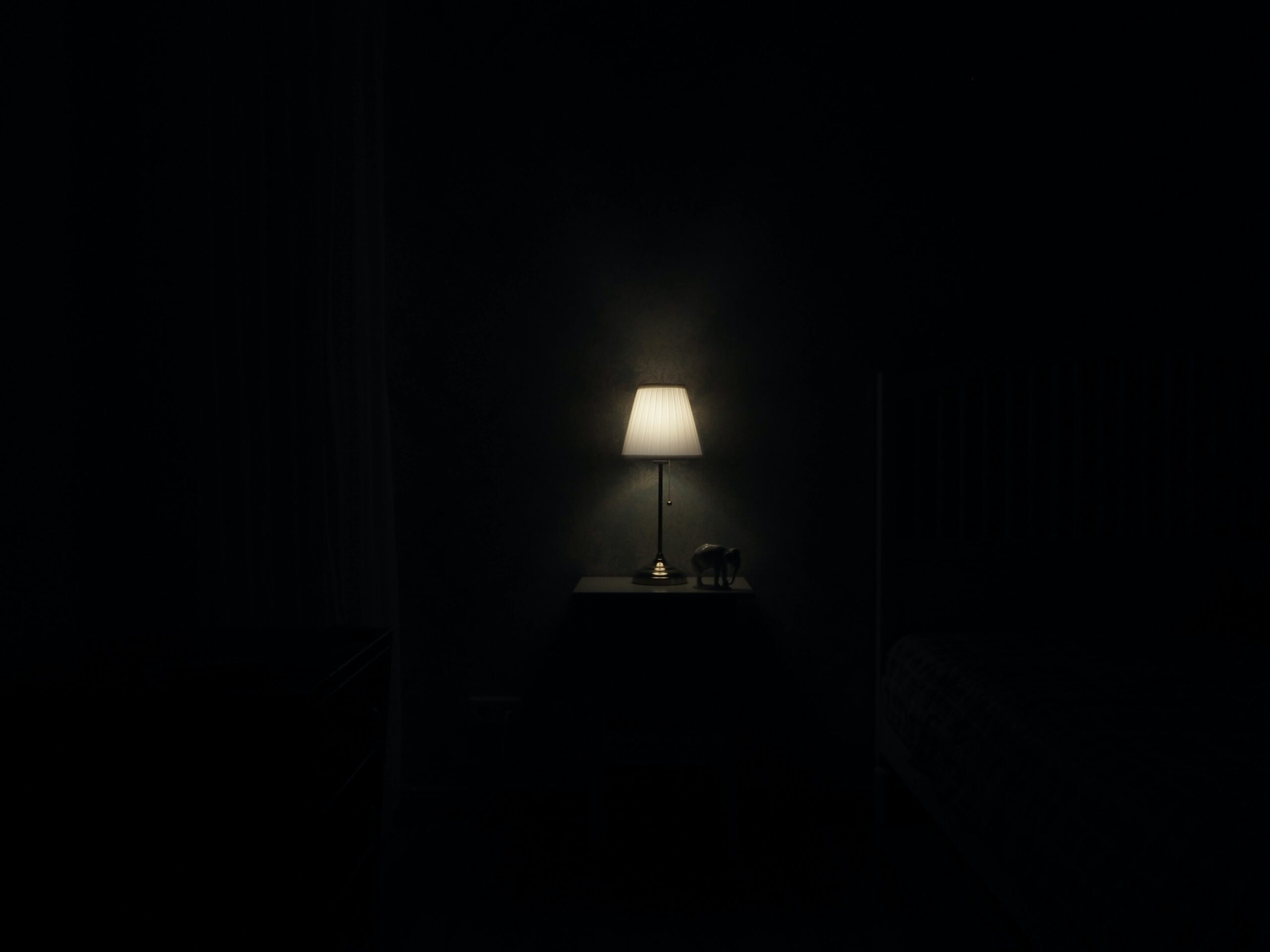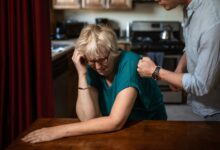If the fear of the dark is common in young children, it can persist into adulthood and be very annoying in everyday life.
Linda Amine, a clinical psychologist specializing in sleep, provides an update on this fear of the dark.
Achluophobia: what is it?
From the Greek prefix achluo, « to become dark, to darken » and the suffix phóbos, « dread, fear, » achluophobia – sometimes also called nyctophobia – refers to the phobia of darkness.
« This phobia of the dark manifests itself by a panic fear at nightfall, during the night or in any place where it is dark, whether it is in a movie theatre or in a bedroom, » explains Linda Amine, a clinical psychologist specializing in sleep. Very common in young children, the fear of the dark appears around the age of two and generally fades as they grow older. « This fear of the dark is often linked to separation anxiety. When it persists into adulthood, it can be a sign of fragility or inner insecurity, » continues the specialist.
What are the symptoms of achluophobia?
People with achluophobia will develop an avoidance strategy. For example, they will refuse to go out at night; leave the light on in their room, etc. Patients will flee dark environments, » confirms the psychologist. Either by bringing in a light – nightlight or bedside lamp that stays on – or by simply avoiding going out at night. »
Similarly, in children, the phobia of the dark will manifest itself by a vesper hyperactivity in order to avoid going to bed.
In the most severe cases, achluophobia can lead to real panic attacks with related symptoms: palpitations, dizziness, feeling of imminent death, nausea, excessive sweating, trembling, chills or hot flashes, etc.
Achluophobia: what causes it?
The development of phobias is based on complex psychological, biological, emotional and genetic mechanisms. Achluophobia is probably an archaic fear, » says Linda Amine. In the dark, human beings see nothing or very little. It is therefore normal to feel more easily vulnerable, like our ancestors whose living conditions, especially at night, were more difficult. He adds: « Darkness can also trigger a feeling of exacerbated loss of control in people with more extensive anxiety disorders. Finally, it is possible that a traumatic event – watching a scary movie or being attacked – can have a strong emotional impact on an individual and then create an association in the brain between that episode and darkness. »
Achluophobia: how to diagnose it?
« For some time now, I have been able to fall asleep only when the sun rises, » said a young woman suffering from achluophobia on a forum. The phobia of the dark has a significant impact on the lives of sufferers. It can impact sleep and be the cause of insomnia, » confirms the clinical psychologist. Indeed, it is very difficult to let yourself go to a deep sleep when you are too tense or stressed. This is why it is important to consult a health professional when this phobia of the dark becomes too invasive.
What are the risk factors for achluophobia?
While no one is immune to developing a phobia of the dark, it seems that people with anxiety disorders are more at risk. Insomniacs may also develop anticipatory anxiety about the night ahead, » adds the psychologist. Having one or more bad nights can be such an ordeal that one simply dreads it happening again. »
What treatment for achluophobia?
When this unreasonable fear of the dark becomes too overwhelming, it is advisable to consult a health professional. I recommend establishing as complete an inventory as possible, » concludes Linda Amine. This allows for better orientation and more effective treatment. This is especially true in cases that could be described as complex.
Behavioral and cognitive therapies or hypnosis sessions can be very effective in the treatment of this phobia of the dark. « When a traumatic origin has been identified, it is recommended to treat the trauma via EMDR (Eye Movement Desensitization and Reprocessing) therapy. Finally, if the anxiety goes beyond the framework of achluophobia, we can turn to a broader psychotherapeutic treatment. »
How to prevent achluophobia?
It is possible to limit the impact of a phobia by consulting a health professional as soon as the first problems appear.

